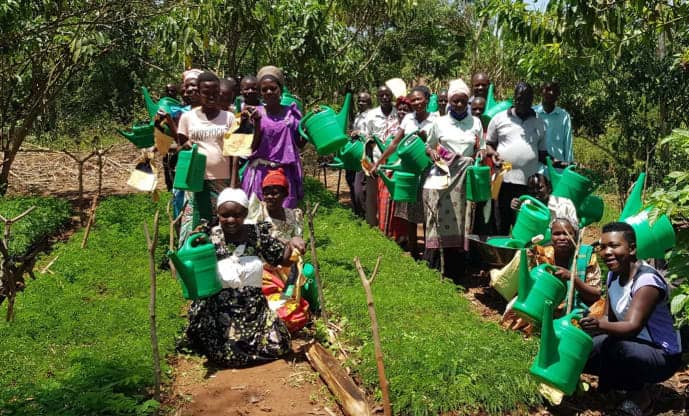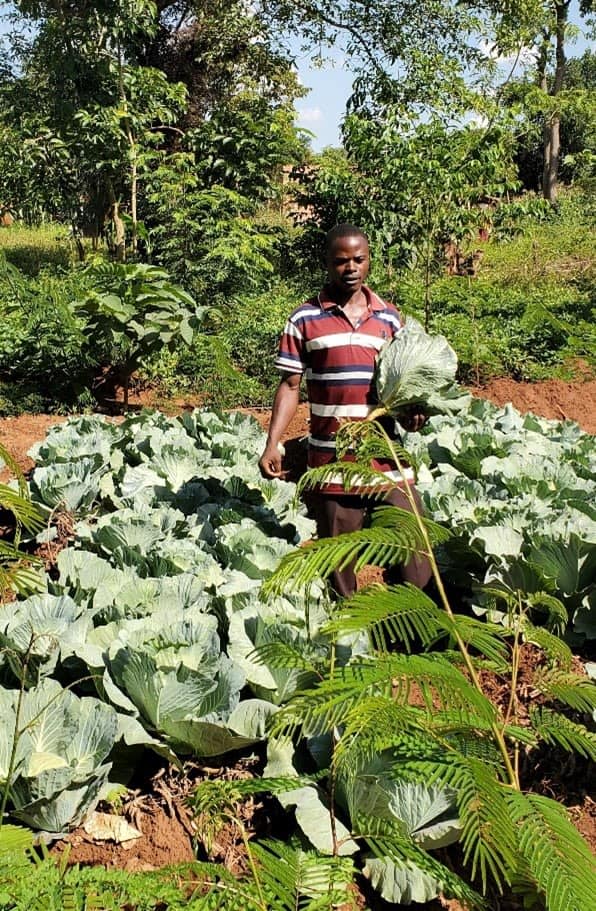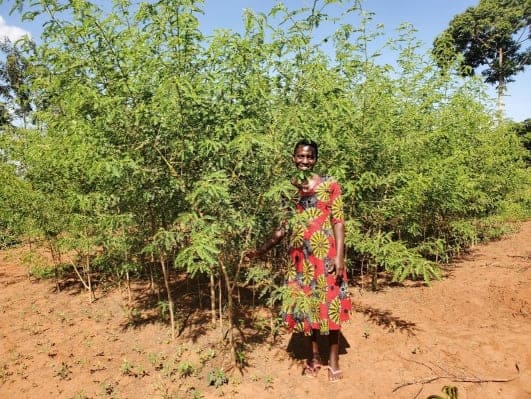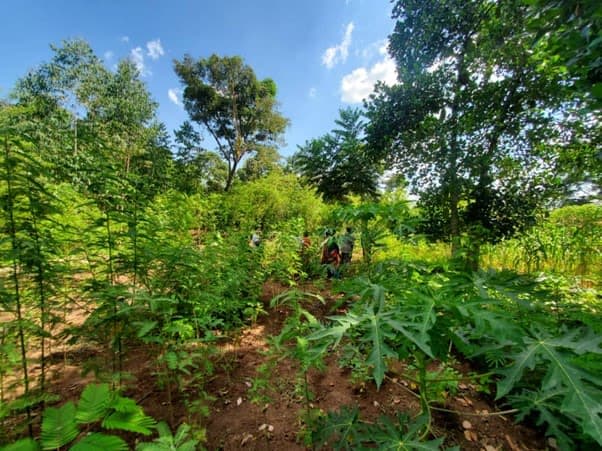Everyone acknowledges that trees do much to enrich our lives, and to this end many countries are pledging to plant more trees in an effort to reach zero net emissions by 2050. The Australian Government plans on planting 1 billion trees by 2030; the UK plans on planting 7,000 hectares of woodlands per year until May 2024.
In many countries like Uganda, people have witnessed firsthand the detrimental effect of environmental destruction. Subsistence farmers personally experience the consequences of cutting down trees – reduced soil fertility, changes in local climate, and land reduced to desert have all had significant impact on their productivity.
Amigos’ response to the climate crisis has been to partner with communities in the Kaliro district through a specific type of farming – Agroforestry. This method of farming sees trees and crops being planted on the same land, where they can be mutually beneficial and both contribute to sustainability. Trees are planted for a variety of purposes – to offer shade for the crops and create protective “living fences”, as well as providing mulch, assisting in water retention and producing food. Acacia, Grevillea, Gliricidia, Calliandra, Sesbania, Leucaena, Mvule, Neem, Moringa and Fruit trees are commonly used within the Agroforestry system.

Through the Agroforestry Project communities have been learning:
- how to begin and manage tree nurseries,
- how to plant seedlings out,
- how to combine an approach to tree-planting with conservation farming,
- how to manage woodlands.
Geofrey Dhikusooka and his family are just one of the success stories to come out of the project. Geofrey’s family had been concentrating mainly on growing sugar canes, which took up much of their time but yielded very little. When Amigos Worldwide introduced the Agroforestry project, his family were among others in the community that benefitted from these new methods.

Geofrey says,
“My wife and I have been able to plant 3,880 agroforestry trees, 131 timber trees, and 50 fruit trees. As a result our land has been restored from being infertile. We are growing vegetables such as tomatoes, cabbages and onions in our perma-garden which has helped improve our diet at home, and has also given us a daily income to support our family. Our home has been a role model in the community and they all come to learn from us”.
The goal is for more people like Geofrey to benefit from this method of farming; for participants to have a forest garden, producing bounteous crops and nutritious vegetables under a canopy of diverse trees. Through this, families will reap so many rewards – food security, increased income, the ability to send their children to school, and a life-filled future.
The results from 2022 are encouraging. Participants have planted a total of 719,133 trees, which have included fruit trees, soil-enriching trees, medicinal trees, trees for animal fodder, and trees for timber.
And the number of participants has grown – from 260 in 2021, to 517 in 2022, with still more community members showing interest in joining the project now that they have seen the benefits.
As Geofrey and his family have testified, this project is yielding an abundance – not just in crops, but in firewood which is fundamental for cooking, in food for their animals, and in fertile soil.

Geofrey concludes,
“I give a big thanks to Amigos and its partner Trees for the Future for bringing this project to my community.”

